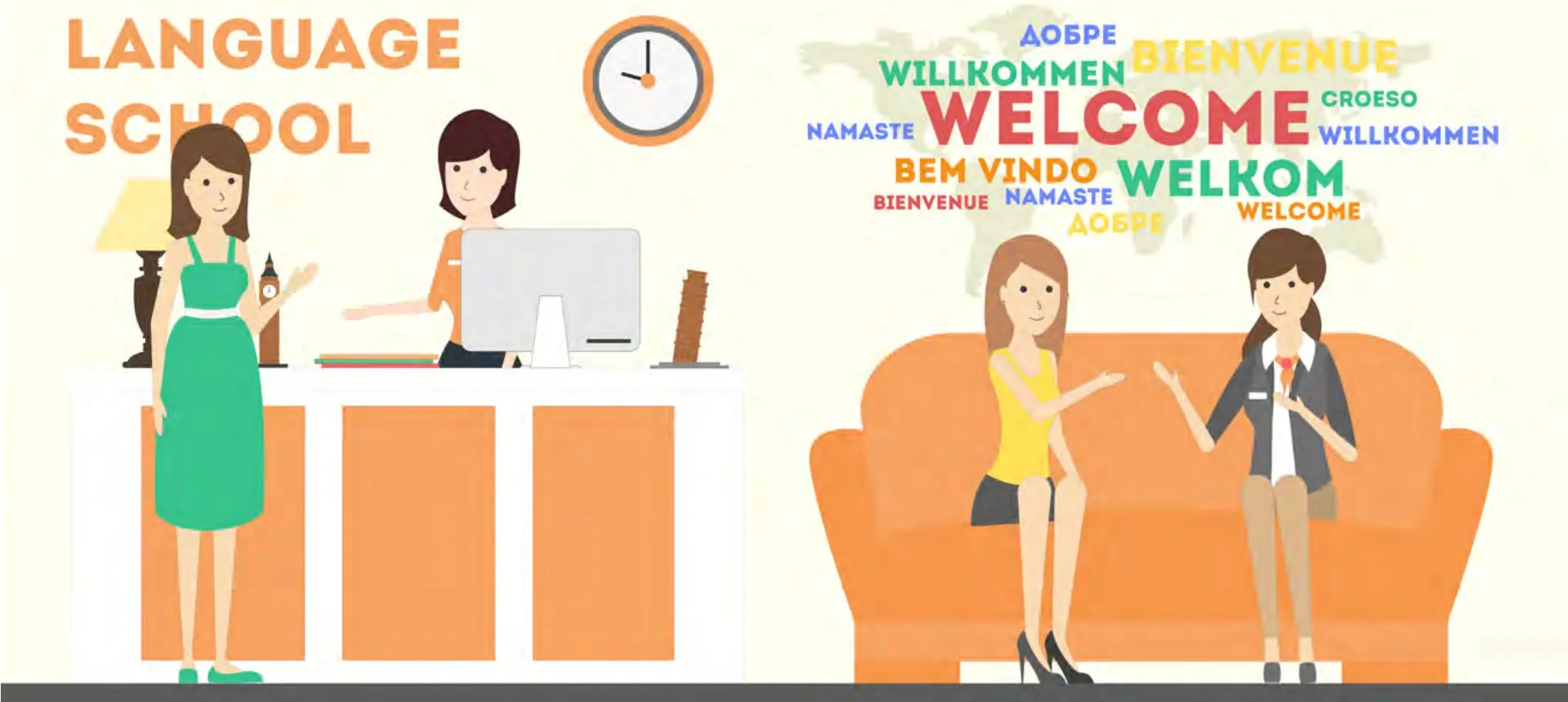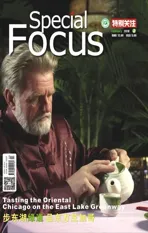Learning by Practice
2018-03-13ByCaiZhizhong
By Cai Zhizhong
To b e t t e r a d a p t t o immigrant life, the first problem one may encounter is the language barrier.Many people have bought into the same fallacy, namely that, after more than ten years of learning English, when it comes time to engage in conversation with the non-Chinese speaking world they will stammer and stutter out of fear of making mistakes, being ridiculed and losing face.
If a foreign expat living in China asks for directions in broken Mandarin on the streets of Beijing, the native speakers will just encourage him to say a few correct words so that they can understand what he means and help him. Who would laugh at his kindergarten Mandarin?
Likewise, it is just normal for a Chinese person to speak barely passable English when they go abroad. Who would ever make fun of them for it?
I am good at self-study. When I was in school, my teachers wanted us to “learn to practice.” But I’ve always extolled an ethic that I believe is more effective, which is to “learn by practice.” No one would ever forget an expression they have used before. The same principle that applies to learning math also applies to learning a language—if you’ve used it you will never forget it.
B e f o r e I e m i g r a t e d t o Vancouver, the only English phrases I could say were “thank you” and “bye bye.” But I firmly believed in the method of“learning by practice.” If you want to learn a language, you’d better move to the place where that language is spoken, as it is more effective to learn language through daily use.
New immigrants who have just moved into a community had better not wander around alone;otherwise neighbors may mistake them for illegal immigrants and call the police.
So walk a dog around the
适应移民生活,第一个遭遇的就是语言问题。很多人学了十几年英文,遇上外国人,结结巴巴,不敢开口说英文,怕自己说得不正确,被人家笑话,这是严重的错误观念。
我们走在北京街头,一个老外用很不通顺的普通话,跟我们问路,我们只希望他多说几个正确单词,以便了解他真正的意思,然后再帮助他,谁会笑他的普通话说得不顺溜呢?
同样,一个中国人在外国,英文说得不正确,是再正常不过的事,没有人会笑话我们。
我擅长自学,上学时,老师说“学以致用”,我总认为,学习不是“学以致用”,而是“用以促学”,这才是有效的学习方法。一句话,我们用过了便永生难忘,学数学、学语言,都是如此。
移民温哥华之前,我只会说Thank you和Bye bye。但我深信“用以促学”,学习语言必须要到当地,在生活中学习,才会事半功倍。
新移民刚搬进一个小区,不要一个人四处乱逛,邻居不知道有新移民入住,会引发他们的疑虑,误以为是偷渡客,从而报警。
所以,要牵一只狗,到小区周边散步遛狗。
看到隔壁加拿大邻居,便对她说:“Hi.”
邻居太太回答说:“Good morning.”
走到第二家,又说:“Hi.”
第二家邻居太太说:“Good morning.”
Good morning复习两三遍,发音正确之后,走到第三家改说:“Good morning.”
第三家邻居说:“Beautiful day, isn’t it?”
走到第四家,又说:“Good morning.”
第四家邻居说:“Beautiful day, isn’t it?”
Beautiful day复习发音几户之后,遇到下一户邻居,便改说:
“Beautiful day, isn’t it?”
“Where are you from?”
“I am from China.”
“Where do you live?”
“I live there.”手指着自己的家。
邻居兴致大开,想交你这个新邻居,因为词穷,你只好说“Sorry,bye bye”,赶紧闪人回家。这样,neighborhood.


When you see a Canadian neighbor next door, say hi to her.
She may reply back, “Good morning.”
Then go to the next house and say hi again.
Your second neighbor may also reply, “Good morning.”
Practice “Good morning” two or three times and make sure your pronunciation is correct. Then walk to the third door and say“Good morning.”
Your third neighbor may reply,“Beautiful day isn’t it?”
Walk to the fourth door and say“Good morning” again.
Your fourth neighbor may also reply, “Beautiful day, isn’t it?”
Practice the pronunciation of “beautiful day, isn’t it?” a few times, and when you meet the next neighbor, say:
“Beautiful day, isn’t it?”
“Where are you from?”
“I am from China.”
“Where do you live?”
“I live there,” you answer,pointing to your home.
Your neighbor might take an interest in you and want to make friends, but due to your limited vocabulary, you will have to say “Sorry, bye bye,” and go back home. You walk your dog every day, all the while learning English in the process. Gradually,your ability in the language will develop.
If you want to learn any l a n g u a g e, o f c o u r s e y o u need to master a very large vocabulary. But before learning that vocabulary, you should understand the truth of memory:You don’t just store away what you memorize into your brain for safekeeping; you should be able to retrieve it when necessary.
The human brain is like a locked drawer—it takes time to locate the key and insert it into the drawer before you can take out what you need. The real problem comes that there are one million keys to the drawer, so the real pain in the neck is finding the one you want.
The right memorization technique is to remember how to take what you need out, rather than how to put it in.
As you can imagine, if there are one million keys to the drawer,the bigger the key is, the easier it is to find. Similarly, a string of words is easier to memorize than a single word. Therefore,connecting words and meaningful phrases to imagery is an excellent way to learn vocabulary.
I read an article about visual memory when I was young that said memorizing five nouns that are unrelated to one another is very difficult, e.g., soy sauce, salt,watermelon, shirt and bathtub.But they are much easier to memorize if we combine them into a single ridiculous image—a person wearing a shirt is bathing in a bathtub filled with soy sauce.This is the effective method of image memory.
Using this technique it only took me three months to learn Japanese. To learn English, you don’t need to memorize words by rote. Just create images in your brain and memorize them, this way it will only take a few minutes to learn a long string of English words. ◆ (From The Genius and the Master, China CITIC Press.Translation: Chen Jiani)每天固定一趟散步遛狗时学习英语,时间久了,慢慢学会几句英语。
学习任何语言,当然得背大量单词,在背单词之前,要先想通记忆的真理:记忆不是要记进去,而是要用时取得出来。
人的大脑,有如存放东西的抽屉。把钥匙放进抽屉,要用时,便能取出来。问题是,抽屉已经有100万把钥匙,钥匙一放进去便找不到了。
正确的记忆方法是:记住取出来的方法,而不是记进去。
可以想象,抽屉里放100万把钥匙,钥匙越大串,越容易找到,记忆英文单词也一样,单词联结得越大串,越容易记住,仅仅一个单词,反而不容易记牢,因此,背诵英文单词,要用图像串联记忆法。
记得年轻时,看到一篇关于记忆的文章,我们很难记住酱油、盐巴、西瓜、衬衫、浴缸五种完全不相关的名词。如果我们把这五种物品组合成一幅荒谬的画面——一个人穿着衬衫,坐在浴缸里用酱油洗澡,就很容易记住,这就是有效的图像记忆法。
我学日文,只花三个月;学英文,根本不需要背单词,只要用画面思考,画面记忆,几分钟内,就可以背一大串英文单词。

